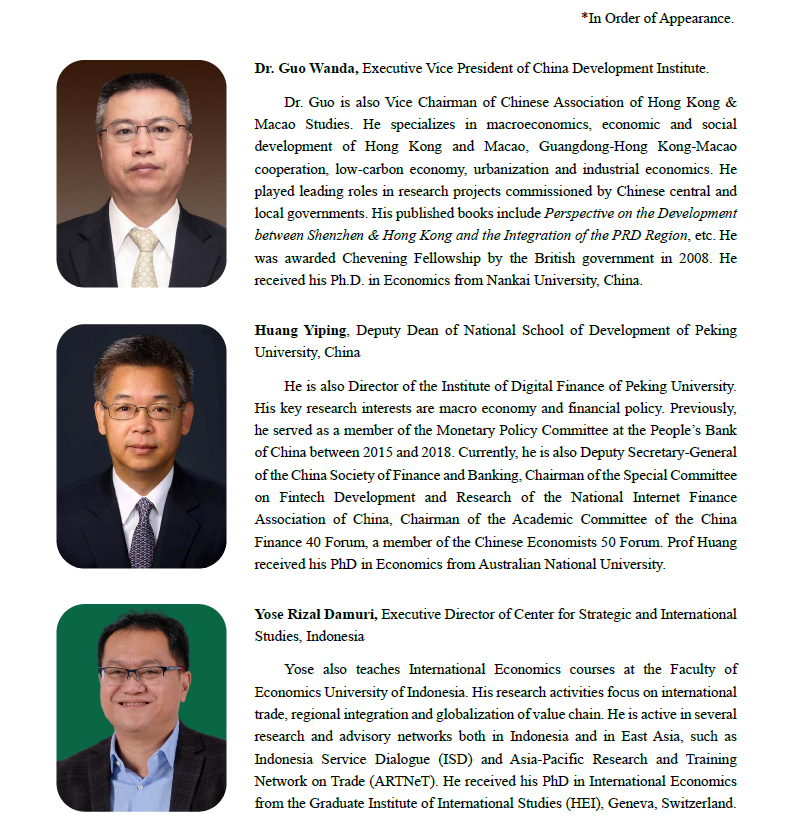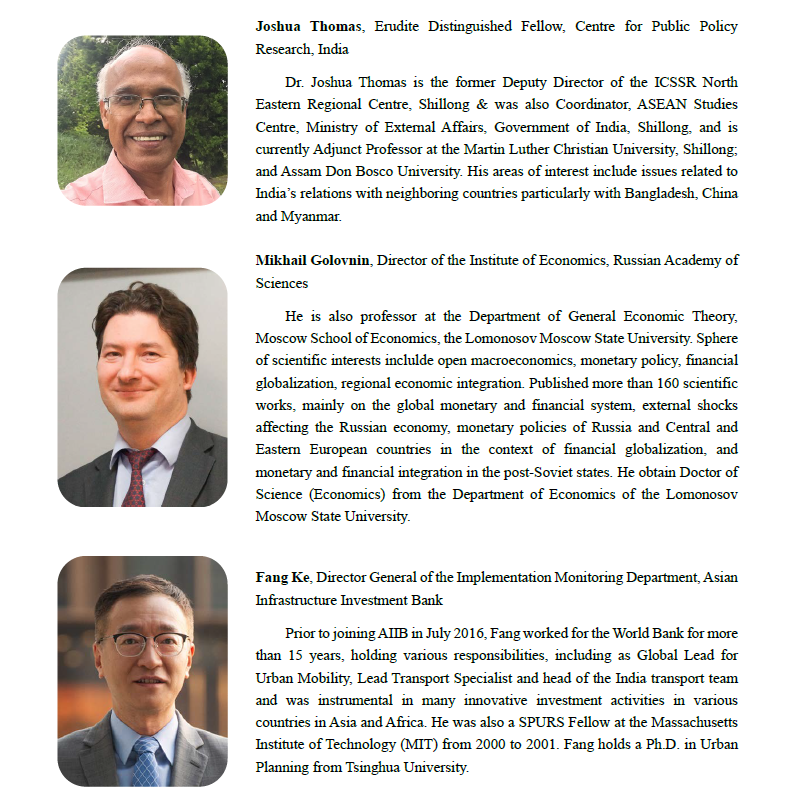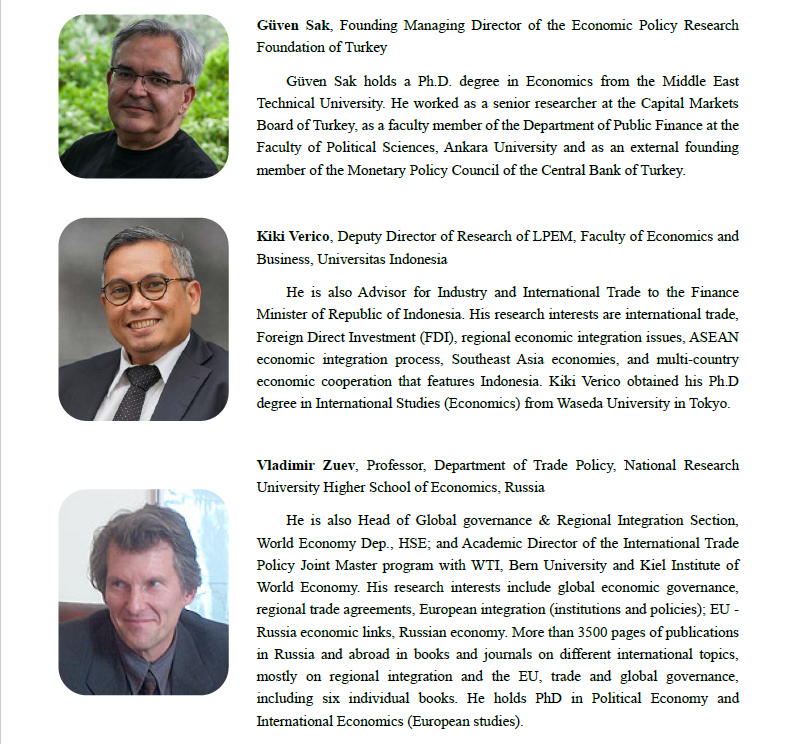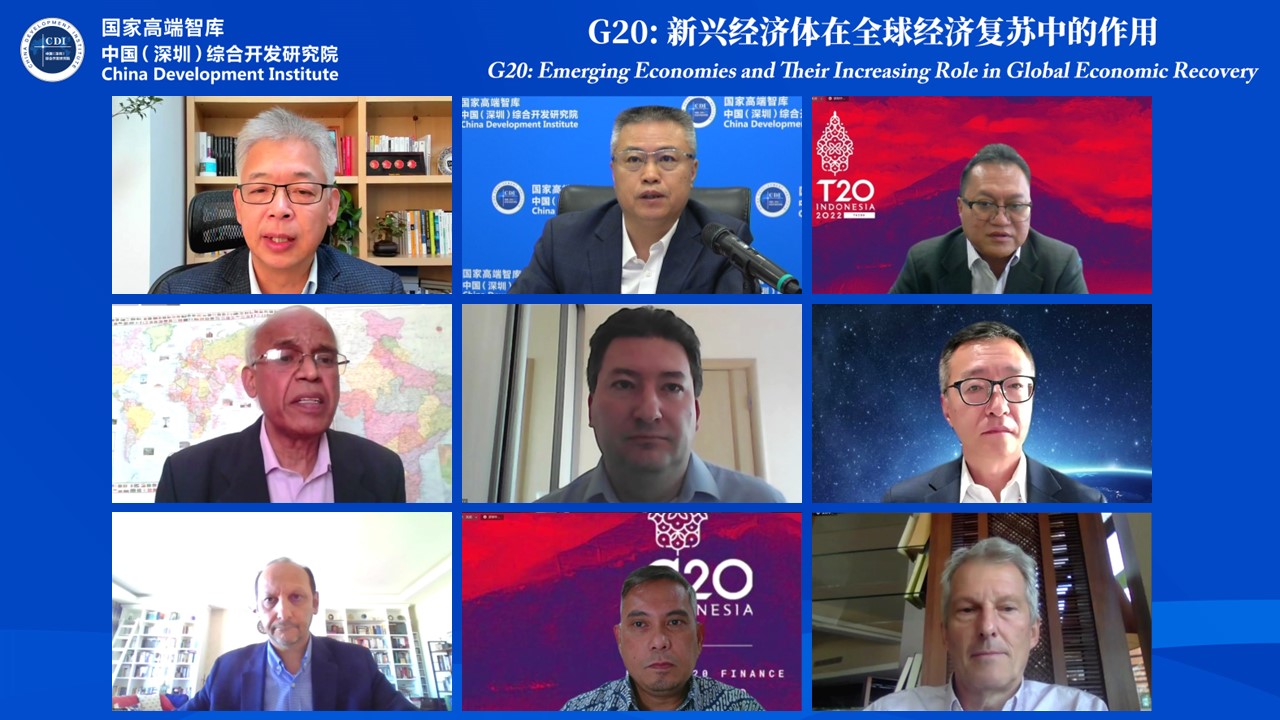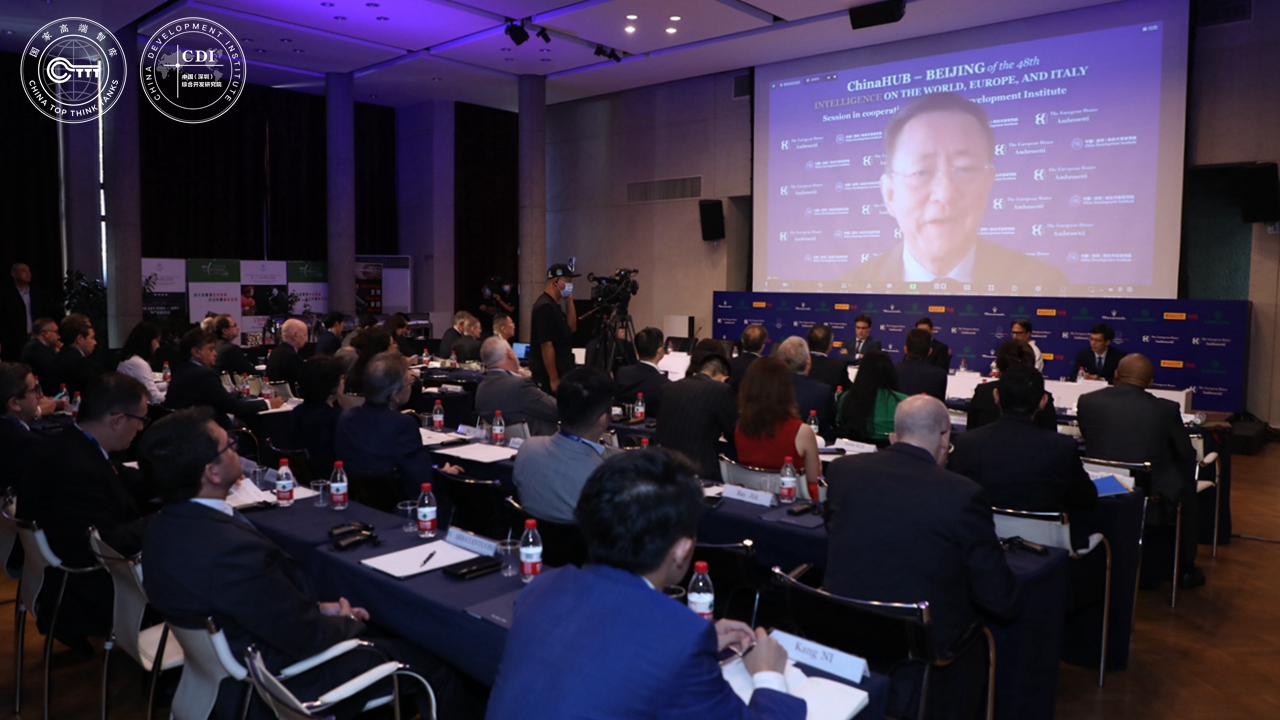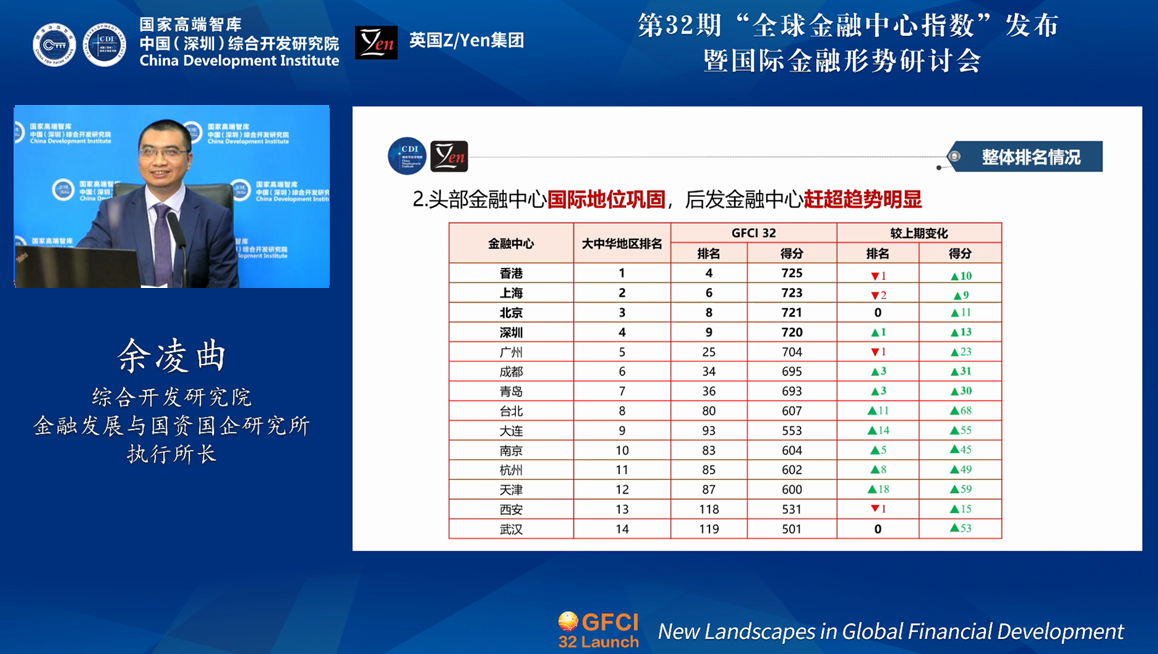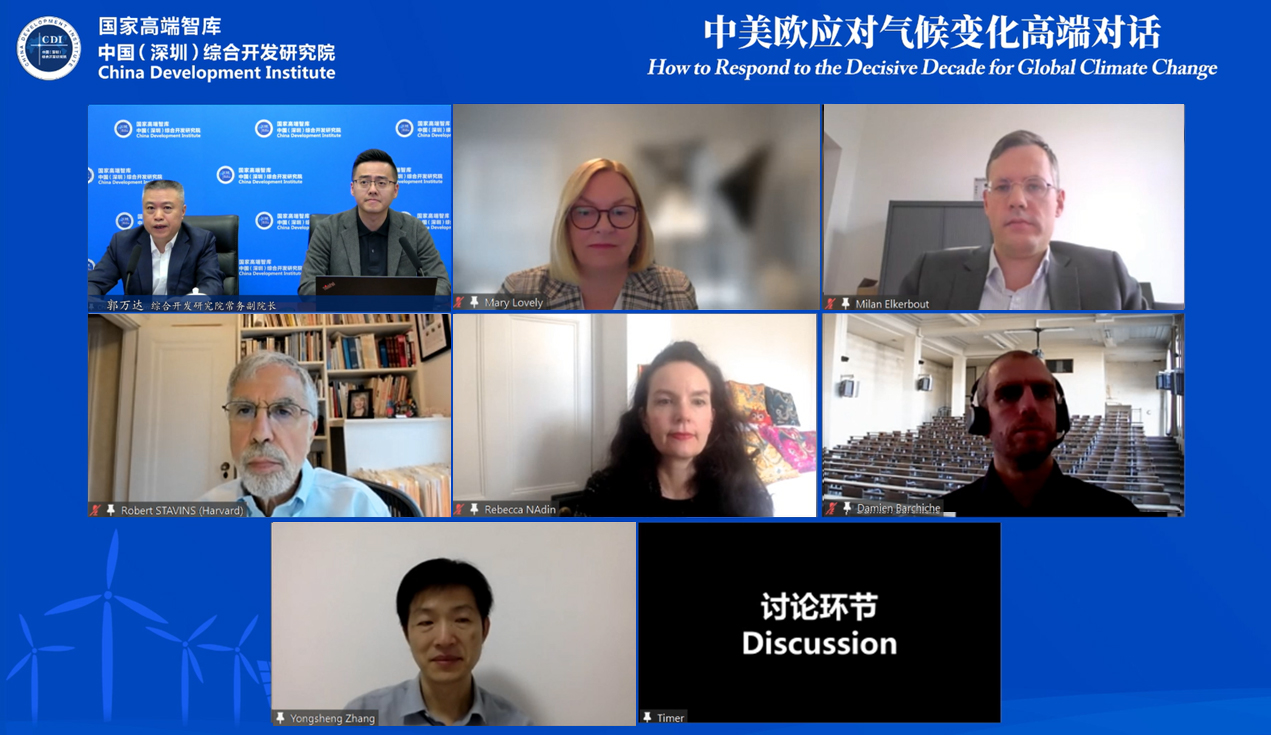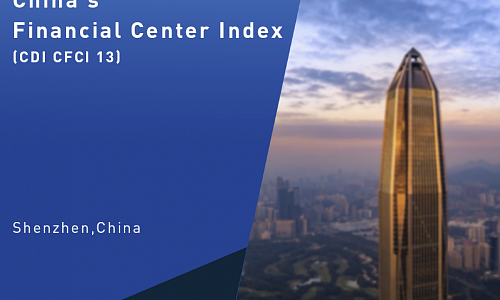Webinar on G20: Emerging Economies and Their Increasing Role in Boosting Global Economic Recovery
Information
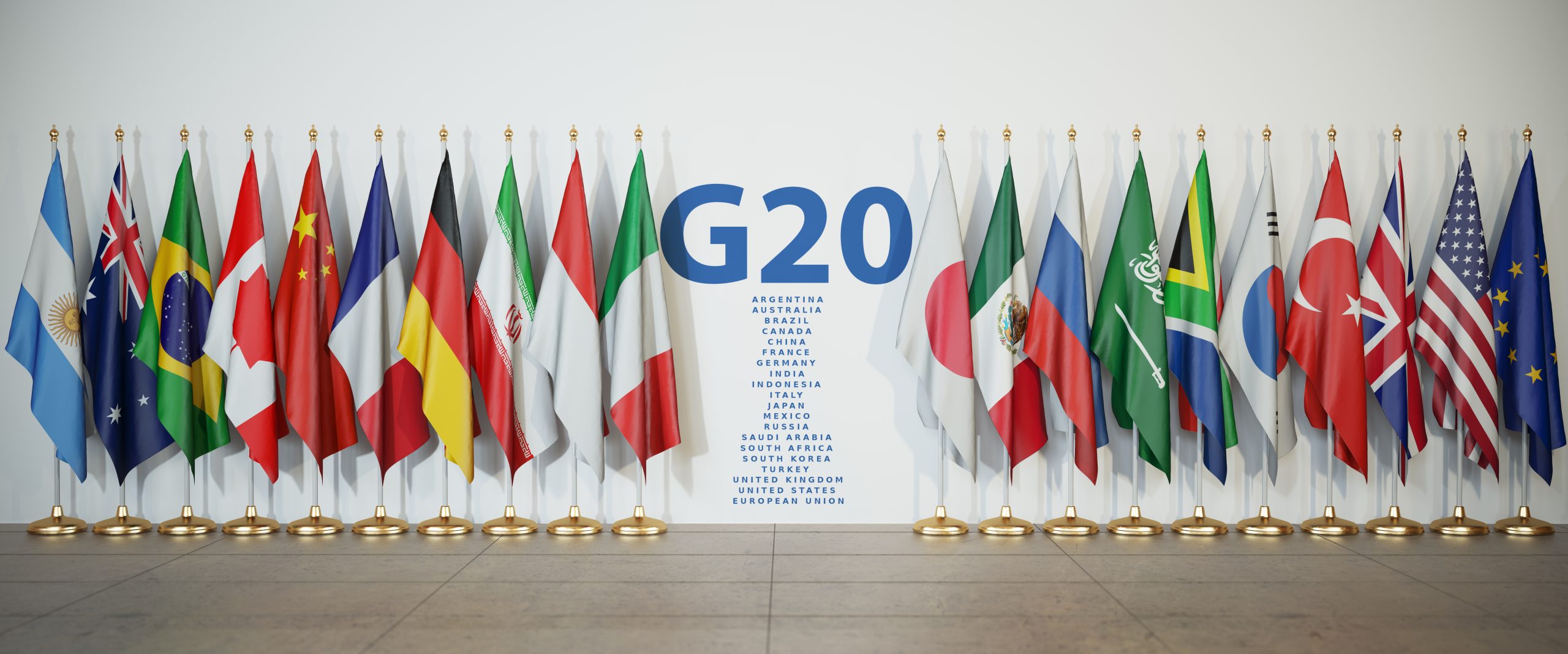
Date and time: 15:00-17:15, Tuesday November 1, 2022(GMT+8)
As a key platform for connecting world’s major developed and emerging economies, G20 has been an important mechanism for global economic governance since its inception. Among the G20 members, emerging economies were the first to bounce back from the Covid-19 pandemic and have remained to be one of the major contributors to global economic growth. However, global economic recovery is still faced with the risk of economic recession and the weakening multilateral rules. Such scenario calls for the emerging economies to coordinate and improve the effectiveness of their respective economic stimulus in order to boost economic recovery and attain sustainable development, make strong adjustment efforts together, and address the uneven development in areas such as national income, energy transition and digital economy.
In this webinar, experts from the emerging economies are gathered together for debates and discussions in hope to shed lights on the challenges faced by the G20 and the world.
Focus for debate:
- What are the pressing issues regarding world’s post Covid-19 recovery and how could the emerging economies in the G20 contribute?
- How should the emerging economies in the G20 respond to the financial and debt vulnerabilities caused by U.S. and EU’s monetary policy adjustment?
- How could the emerging economies in the G20 cooperate in attracting more international funds and investment so as to push forward energy transition and digital development?
*Available in English and Chinese.
*For more details, please contact Ms. Penny Liu (pennyliu@cdi.org.cn)
Register in advance for this webinar:
https://us06web.zoom.us/webinar/register/WN_a1Nmn51MSSm3x6wXt5yB-g
After registering, you will receive a confirmation email containing information about joining the webinar.
China’s Economic Outlook and Prospect for International Enterprises Operating in China
Information
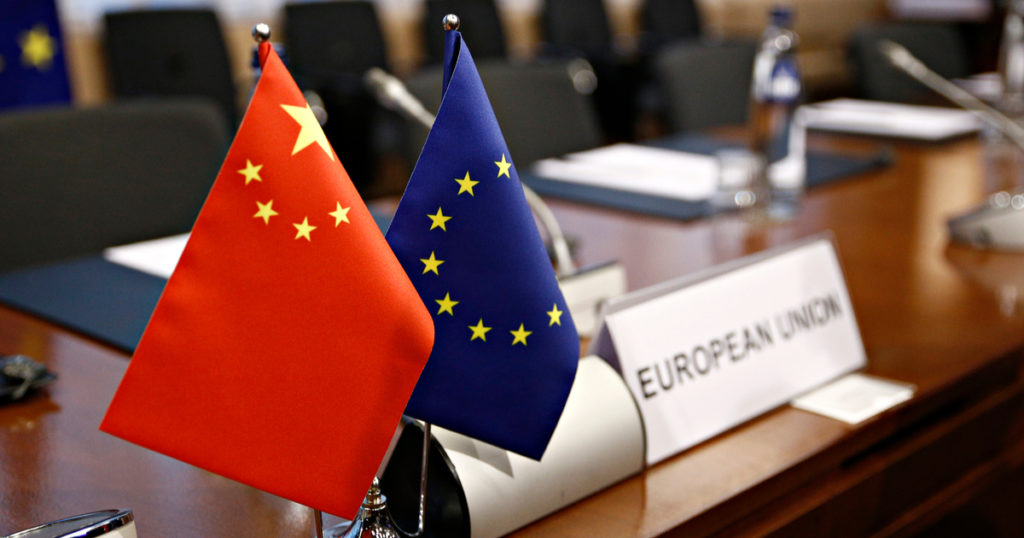
The global economic growth in 2022 is slowing as a result of the combination of different contributing factors, such as the ongoing pandemic, Russia-Ukraine conflict, as well as the rising inflation. In terms of China, after registering a better-than-expected GDP growth of 4.8 percent year-on-year in the first quarter of 2022, China's economy is now facing more headwinds as resurgences of more contagious variants of COVID-19 has hurt domestic demand, supply chain resilience, and consumer confidence.
In the collaborative effort made by The European House – Ambrosetti and China Development Institute, scholars and entrepreneurs from Europe and China are brought together to provide insights on status and outlook of China’s economy and the prospect for international enterprises operating in China.
Date: September 2, 2022
Host: The European House – Ambrosetti and China Development Institute
Shenzhen Scholarly Salon Held in CDI
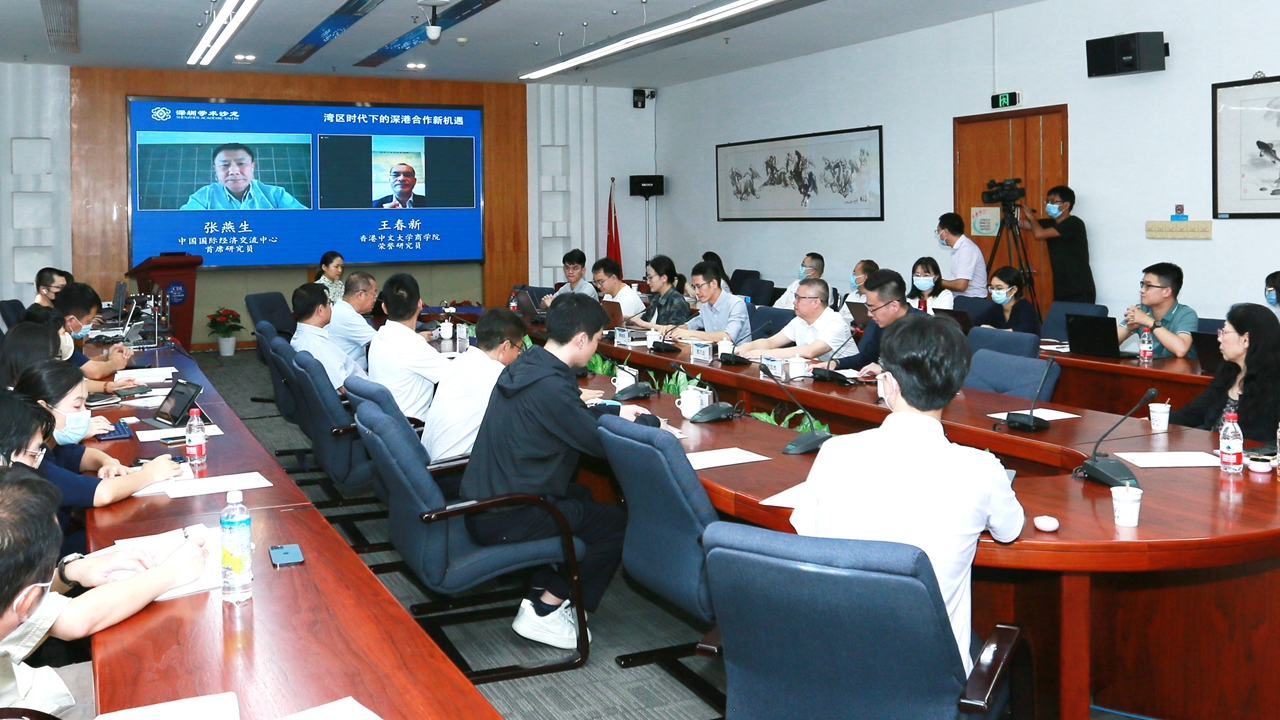
On Sept 21, the Shenzhen Academy of Social Sciences and the China Development Institute co-organized the three hundred and seventy-third edition of the Shenzhen Scholarly Salon, themed on Opportunities of Shenzhen-Hong Kong Cooperation under the Guangdong Hong Kong-Macao Greater Bay Area. Scholars from Beijing, Hong Kong and Shenzhen exchanged views on how the two cities should strengthen cooperation in terms of policy and practice, science and innovation collaboration, financial development and giving full play of the two cities’ complementary competitiveness. The Salon was also streamed online with over four thousand views.
Recovery Slows Amid Weakening Global Economy

Growth strengthened, but only slightly. In August, industrial output rose 4.2% y/y, up 0.4 pps, lifting overall January-August growth to 3.6%, up 0.1 pps. Investment rose 5.8% y/y in January-August, up 0.1 pps. The August growth rate was 6.4% y/y, up 2.8 pps. Real estate investment growth rate fell further, to -13.8% y/y, down 1.7 pps from August 2021.
In August 2022, consumption rose 5.5% y/y, up 2.7 pps. This is partly due to the low base number of last year, when consumption rose 2.5%, and was down 6 pps from August 2021.
Exports rose 11.8% y/y, down 12.1 pps from July 2022. This seems partially because all major countries except China are exiting from monetary expansion, leading to weakened demand. This month was the first time where exports to the United States had negative growth of -3.8% y/y, dragging down total export growth by 3 pps.
PPI rose 2.3% y/y in August, down 1.9 pps. A major contributing factor is that the production material price growth rate was down 2.6 pps. CPI rose 2.5% y/y, down 0.2 pps from July. Monetary policy remained neutral. At the end of August, M0 rose 14.3% y/y, up 0.4 pps from July. M1 increased 6.1% y/y, down 0.6 pps from July. M2 rose 12.2% y/y, up 0.2 pps.
The offshore exchange rate of the Chinese yuan versus the U.S. dollar recently breached the 7:1 mark for the first time in over two years. Similar to other global currencies that have depreciated in 2022, the yuan’s decline is being driven by the strengthening of the dollar. However, the yuan “basket index” has been relatively stable, and the yuan is unlikely to see significant depreciation, given our forecast of a good balance of payments and overall macroeconomic recovery from further stimulative fiscal policy in the coming months. Other major currency determinants are also sound for the yuan, including a high position for the interest rate and foreign reserves.
Launch Of Global Financial Centres Index 32 - New Landscapes in Global Finance: Prospects and Responses
Information
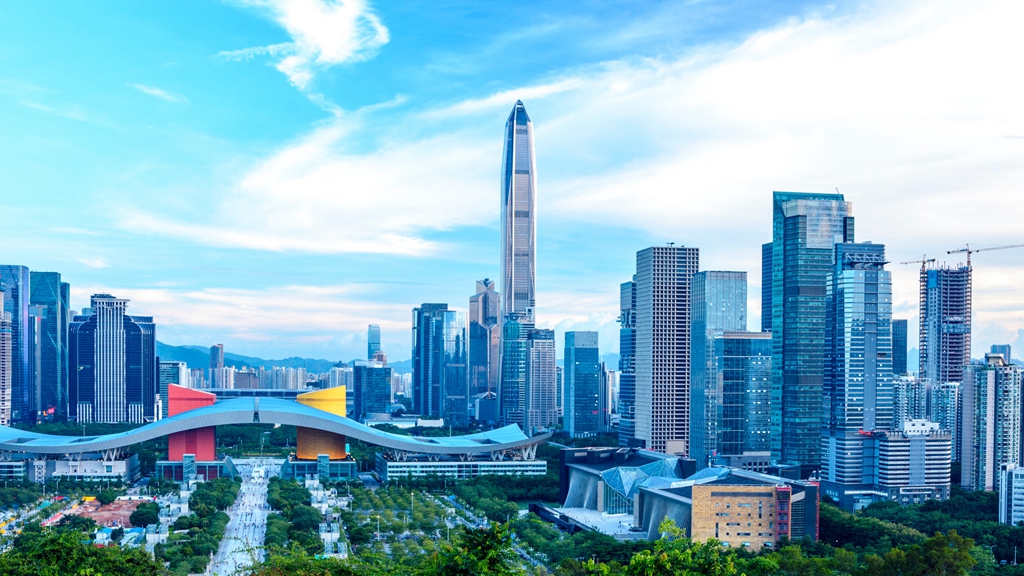
Date and time: 16:00-17:30, Thursday September 22, 2022(GMT+8)
In 2022, the Russia-Ukraine conflict and its effects on supply chains, commodity markets, inflation, and financial systems have aggravated the slowdown in global growth. One main risk is the possibility of high global inflation accompanied by slow economic growth which could eventually result in a sharp tightening of monetary policy in advanced economies and the increasing financial stress in emerging markets and developing nations. An effective and wide-ranging policy response is required to boost growth, bolster macroeconomic frameworks, reduce financial vulnerabilities, and support vulnerable economies.
This webinar will give an overview of the uncertainties that the global economy and finance are facing and how we need to response to their impacts.
Focus for Debate:
- What are the new changes and challenges in the global finance in 2022?
- What is the solution to strengthen global cooperation in pandemic responses as well as trade and investment?
- What is future of cooperation in financial markets between China and Europe?
- How to refrain from geopolitical conflicts and frequent policy changes that disrupt GVCs, supply chains and the international order?
- How should countries adopt energy supply policies and central bank implement business investment policies to curb high inflation and low economic growth?
English/Chinese simultaneous interpretation available.
Register in advance for this webinar:
https://us06web.zoom.us/meeting/register/tZUudemrrT8jHdFb6wdqjw64oqMQEOG8BUGK
After registering, you will receive a confirmation email containing information about joining the webinar.
2022 Shenzhen-Hong Kong Cooperation Forum
Information

Since its inception in 2006, the Shenzhen-Hong Kong Cooperation Forum aims to address the pressing and shared issues faced by Shenzhen and Hong Kong while providing policy recommendations for decision makers. In this year’s edition, representatives of the government, enterprise and think tank from both sides were gathered together to shed lights on the future of Hong Kong as well as the challenges and opportunities for Shenzhen-Hong Kong cooperation in the coming years.
Date: August 26, 2022
Host: China Development Institute and One Country Two Systems Research Institute
Real Estate Cooling Drags Economic Recovery
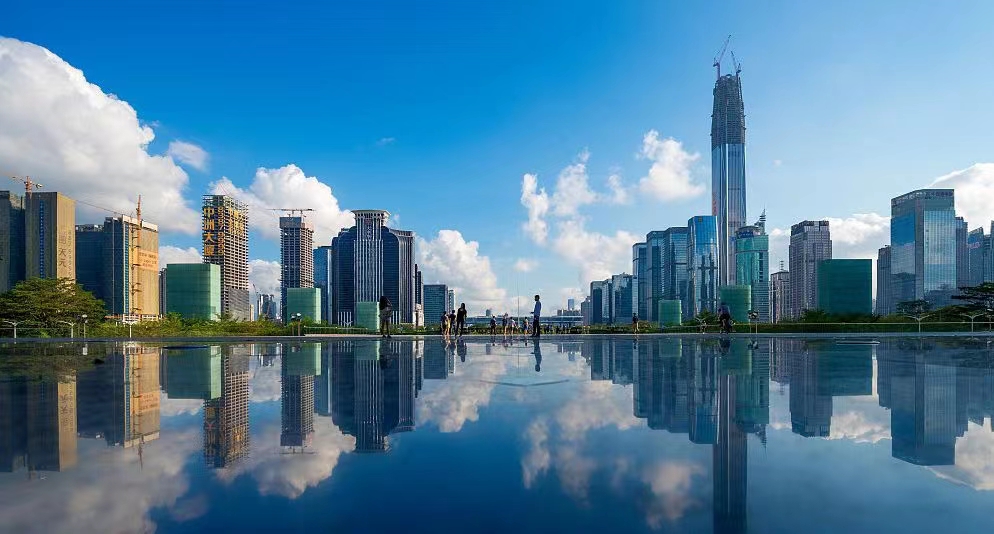
Industrial output grew 3.5% y/y in January-July, up 0.1 pps from H1. In January-July, investment rose 5.7% y/y, down 0.4 pps from H1. In particular, the investment growth rate in July was down 2.4 pps from June. High infrastructure investment has been flattened by reduced real estate investment.
Retail sales of social consumption goods fell -0.2% y/y in January-July, up 0.5 pps from January-June. Exports were still strong. In July, exports rose 23.9% y/y, up 1.9 pps from June. Due to the stop of global monetary policy easing, the continuing Ukraine crisis, and the ongoing pandemic, other countries have not recovered well, giving more opportunities to Chinese companies.
PPI and CPI continued to converge. In July, the global crude oil price dropped significantly, leading the overall price level in China to fall. PPI rose 4.2% y/y, down 1.9 pps. CPI rose 2.7% y/y, up 0.2 pps from June, mainly driven by food prices. Monetary policy is easing, but at a small scale due to inflation concern. In the end of July, M0 rose 13.9% y/y, up 0.1 pps from June. M1 rose 6.7% y/y, up 0.9 pps. M2 rose 12% y/y, up 0.6 pps.
The real estate market has been cooling for over a year, and has become particularly cold. In August, China’s property sales plunged almost a third, more than during the 2008 financial crisis. Real estate investment growth fell further to -12.3%, after falling -9.4% in June and -10.1% in April. The real estate sector takes one third of GDP, and so receives much attention. We view the picture as completely different from the 2008 U.S. housing crisis. It is the Chinese government who started this real estate deleveraging, in view of potential future financial problems, and so it is largely manageable. There are also complementary policies, such as bailing out home buyers. Risk is containable, but the process is painful, and will take some time.
How to Respond to the Decisive Decade for Global Sustainable Development?
Information

Date and time: 20:00-22:00, Tuesday September 20, 2022(GMT+8)
Nowadays, climate change is no doubt one of the biggest challenges of our times with frequent disasters caused by the extreme weather. As climate change affects the planet, there should be a general recognition of the urgent need for all the parties to combat the climate crisis with collective effort.
China, the U.S, and the EU, the world’s largest three emitters, account for more than half of the global emissions. This is why trilateral cooperation is particularly necessary, and it is time that words turn into actions.
Due to the recent international geopolitical crisis, the EU wants to move away from Russian energy and coal-fired power will be used as an emergency reserve. So, in short term it will affect the progress of EU energy transition. While China and the U.S had expressed that they would collaborate to tackle climate change during the COP26 in Glasgow, nonetheless, effective actions and cooperation we have seen so far are slow in progress. How should we turn the commitments made in the Glasgow Climate Pact into action in the following decisive decade?
Facing the pressing challenges, China Development Institute is going to host an online discussion with experts from the three sides to debate on how China, the U.S. and the EU can work together to highlight the importance of action and cooperation on the occasion of COP27 will be held in Egypt.
Focus
- What are the biggest challenges for China, the U.S. and the EU’s collaboration in climate action?
- How could China, the U.S. and the EU better support the vulnerable countries in dealing with climate change, while maintaining economic growth?
- How should China, the U.S. and the EU jointly build a fair and inclusive global climate governance system in order to realize the goal of Paris Agreement?
English/Chinese simultaneous interpretation available
Register in advance for this webinar:
https://us06web.zoom.us/webinar/register/WN_AvaEoLaxQZixemB1xYG1dg
After registering, you will receive a confirmation email containing information about joining the webinar.
Recovering from the Lockdowns
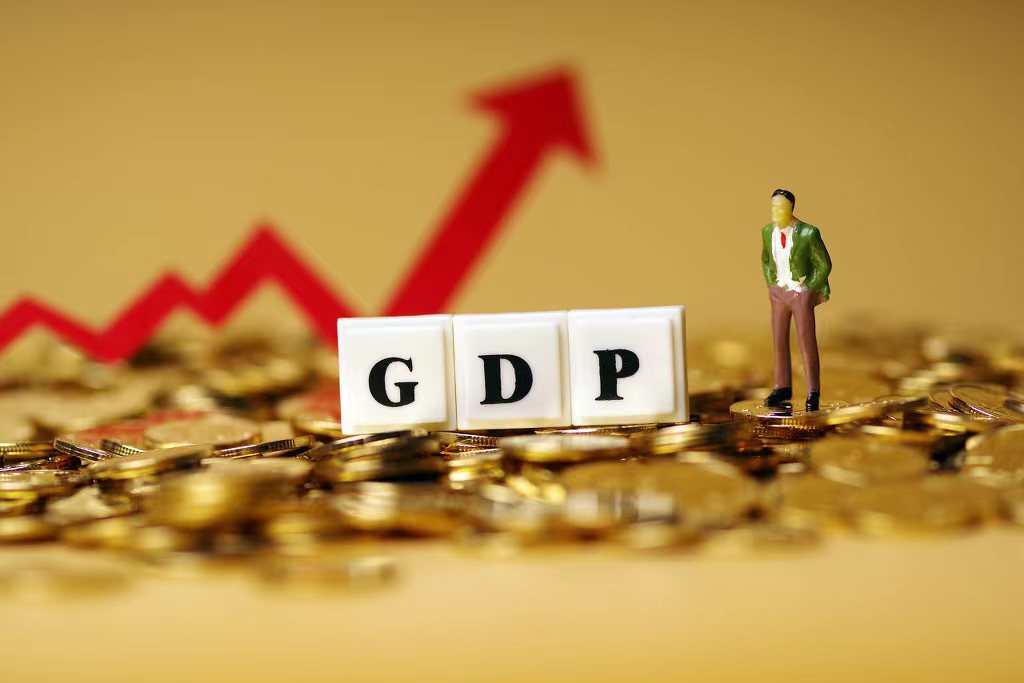
GDP only grew 2.5% y/y in H1. As the pandemic shock has been gradually under control and the start of various economic stabilization policies, the recovery growth in June has lifted the Q2 growth to achieve positive growth at 0.4% y/y, contributing to the path “back to normal”.
In H1, industrial output rose 3.4% y/y, down 3.1 pps from Q1. In H1, investment growth rate was 6.1% y/y, down 3.2 pps from Q1, but still 1.2 pps faster than 2021. The continuing real estate cooling does not see any time ending.
Pandemic lockdowns suppressed consumption. Retail sales of social consumption goods fell -0.7% y/y, down 4 pps from Q1. Survey data shows Chinese consumers are pessimistic about future income growth putting more constraint on future consumption recovery. In H1, exports rose 13.2% y/y. In June alone, exports rose 22% y/y, accelerating since April, and is an important force lifting economic recovery.
In H1, PPI rose 7.7% y/y. CPI increased 1.7% y/y. Low inflation benefits from the recovery of supply chains, domestically and internationally. However, future inflation pressure is still high. The main financial indicators were loosened somewhat countercyclically. At the end of June, M2 rose 11.4% y/y, up 0.3 pps from May, and up 1.7 pps from Q1, slowly picking up. M1 rose 5.8% y/y, up 1.2 pps from May, and up 1.1 pps from Q1.
China’s unemployment situation is worsening. According to the National Bureau of Statistics, the government official source, China’s youth unemployment rate for ages from 18 to 24 hit an all-time high of 19.3% in June. It was a sharp rise from 18.4% in May and marked a year-on-year increase of 25%. We believe the unemployment might not pose a society crisis. Parents in China usually provide living net. The unemployment leans more to friction cause. For example, many campus recruitments were suspended because of the pandemic.
Government will continue its effort to bring the economic activities to a higher level. However, it seems not necessary for China to stimulate the economy by additional measures. On July 20th, China’s Prime Minister Li Keqiang stated that China will not adopt large stimulus policies.
Zhang Zhetao

Research Associate
Research Focus
Macroeconomics, Belt and Road Initiative, Guangdong-Hong Kong-Macao Greater Bay Area, Regional Economics, Rural Development, Industrial Planning, Industrial Park, Finance
Education
Master of Finance, The Australian National University
Projects
Comprehensive Study on the Application for Establishment of the China (Xinjiang) Pilot Free Trade Zone, 2023
Industrial Development Planning of China-Russia Border Trade Zone in Manzhouli Inner Mongolia, 2023
Industrial Planning of Shenzhen-Hong Kong Advanced Manufacturing Cooperation Zone (Fuhai Area), 2023
Study on Industrial Development Planning of Tashkurghan County Xinjiang, 2023
Planning of Intelligent Terminal Industry Development in Pingshan District Shenzhen, 2023
Key Research Report on Further Deepening Shenzhen-Hong Kong Cooperation and Promoting Efficient and Convenient Flow of Shenzhen-Hong Kong Market Resources, 2022
Third-party Comprehensive Evaluation of the Development of Shenzhen's Qianhai & Shekou Free Trade Zone, 2022
Comprehensive Consulting Service for Adopting an Open Approach to Running the Ganquanbao Economic Development Zone in Xinjiang, 2022
Implementation Plan of Group-based Progressive Development Mode of Bole Border Economic Cooperation Zone in Xinjiang, 2022
Report on the Development of Border Economic Cooperation Zone and Cross-Border Economic Cooperation Zone (2021), 2021
Study on Industrial Development Planning for Manzhouli Comprehensive Bonded Zone, 2021
Study on the 14th Five-Year Plan for the Development of Professional Service Industry of Qianhai Shenzhen, 2021
The 14th Five-Year Plan and the Outline of 2035 Long-Term Goals for the Financial Industry of Qianhai Shenzhen, 2021
Study on the Implementation Scheme of Qianhai Shenzhen-Hong Kong International Financial City, 2021
Study on Strategic Positioning and Industrial Development Planning for Mawan Area in Qianhai Shenzhen, 2021
Study on Group-based Progressive Development Mode of Tashkurgan Border Economic Cooperation Zone in Xinjiang, 2020
Study on Group-based Progressive Development Mode of Jeminay Border Economic Cooperation Zone in Xinjiang, 2020
Comprehensive Study on Group-based Progressive Development of Manchuria Border Economic Cooperation Zone in Inner Mongolia, 2020
Implementation Plan of Group-based Progressive Development of Pingxiang Border Economic Cooperation Zone in Guangxi, 2020
Implementation Plan of Group-based Progressive Development of Dongxing Border Economic Cooperation Zone in Guangxi, 2020
Outline of 14th Five-Year Plan and 2035 Long-Term Goals of Qianhai Shenzhen, 2020
Study on Overall Development Strategy of Shanwei (2020-2035), 2020
Implementation Plan of Shenzhen-Heyuan Special Experimental Cooperation Zone in Guangdong, 2020
Work Plan for Accelerating the Construction of Shenzhen Qianhai International Financial City, 2020
Industrial Development System and Spatial Layout Planning of Shanwei, 2020
Industrial Development Planning of Yanluo Subdistrict Bao’an District Shenzhen, 2020
Industrial Planning Project of Changsha Jinxia Industrial Agglomeration Area, 2020
14th Five-Year Plan for Education Development in Pingshan District Shenzhen, 2019
Contact
tel: +86-755-8247 8573
e-mail: zhangzhetao@cdi.org.cn

